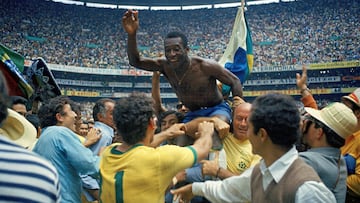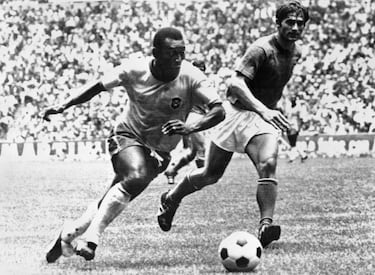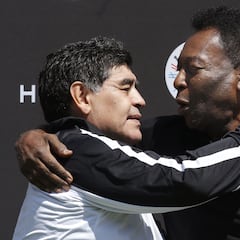Why did Pelé never win a Ballon D’Or if he is considered the GOAT?
In a 21-year playing career, Pelé won more World Cups than anyone else but the Ballon d’Or escaped him.

Pelé? Diego Maradona? Lionel Messi? Cristiano Ronaldo? Just who is the GOAT (the greatest of all-time for the uninitiated) in soccer? I know what you’re thinking. That might be of the most tedious questions of all-time.
We all have our favourites, for one reason or another, while the act of comparing players across different eras is an almost impossible task.
One thing that is for sure, however, is that Brazilian legend Pelé has to be in the conversation, at the very least. The youngest man to win the World Cup, the only one to have done it on three occasions (1958, 1962 and 1970), Brazil’s all-time top goalscorer, a recognised Guinness World Record holder with 1279 goals in 1363 games (including friendlies. I know...) and even labelled “the greatest” by FIFA.

But for all his accolades from his 21-year playing career, in which he played for Santos and New York Cosmos, O Rei never once won the Ballon d’Or. “How can the GOAT never have won the Ballon d’Or?” I hear you ask. Messi has seven of them, Cristiano Ronaldo has five.
Why did Pelé never win the Ballon d’Or?
The Ballon d’Or is the number one individual award in world soccer and has been run by France Football magazine since 1956. Between 2010 and 2015, it temporarily merged with the FIFA World Player of the Year and was called the FIFA Ballon d’Or, but FIFA have since created their own, separate award called The Best.
Ironically, Pelé made his club debut for Santos in the very year that the Ballon d’Or was inaugurated. However, it was originally created as a European Footballer of the Year award and often referred to as such in English-speaking and international media. Up until 1995, no European player was eligible to win, which means that Pelé and Maradona, the two stand-out non-European players during the previous decades, were never in the running.

Related stories
From 1995 until 2007, non-European players playing for European clubs were eligible for the award, with George Weah of Liberia becoming the first to do so while playing for Milan. Brazilian Ronaldo (twice), Rivaldo and Ronaldinho all later won it before eligibility rules were changed once again in 2007, which opened the award up to all players from any country.
Far too late for Pelé of course, but O Rei can console himself with winning the first ever FIFA Ballon d’Or Prix d’Honneur (honorary award) as acknowledgement of his contribution to world soccer. On top of that, France Football conducted a retrospective study in 2015 and concluded that Pelé would have won the Ballon d’Or on seven occasions during his career had he been eligible, which would have him tied with Messi at the very top of the tree.

